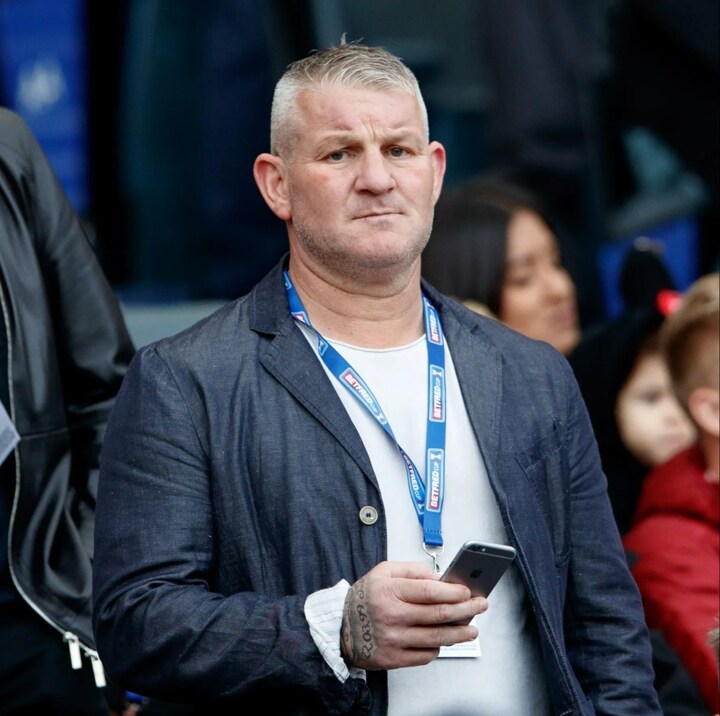DEAN WINDASS has been diagnosed with dementia at the age of 55, Manchester United legend David May revealed on TV.
And now David Beckham is calling on football authorities to do more to support players with the neurodegenerative disease.
Windass earned legendary status at boyhood club Hull and also played in the Premier League with Bradford and Middlesbrough.
He famously shot the Tigers to the top with his wonder-goal volley in the 2008 play-offs at the age of 39.
Windass initially retired in 2009, before making brief comebacks over the next three years.
But now that he is only in his mid-50s, he recently received the shocking news about his health.
May, 54, appeared on BBC Breakfast on Friday morning alongside Nobby Stiles' son John.
With permission from Windass, the former Manchester United and Blackburn defender said: “I only spoke to Dean Windass yesterday, ex-professional footballer.
“I asked Deano how he is doing.
“He has been diagnosed with stage 2 dementia.
“He's the same age as me and he's worried about what things will be like for him in the future.”
The news about Windass came as a shock to football fans.
But May reassured his followers on X that he had received the green light directly from his friend to announce the update.
Old Trafford hero May tweeted: “FYI I spoke to @DWindass10 last night and asked his permission.
“He was 100 percent behind me and said he had been diagnosed with stage 2 dementia.
“Deano just wrote an article for a national newspaper that will be published soon. Share the love.”
Windass retweeted May's post and another message of support that read: “I'm so sorry to hear that Deano @DWindass10. My mother had Alzheimer's disease and vascular dementia.
“Keep doing what you're doing mate, stay physically and mentally active my friend and of course you've got the Yorkshire grit, fighting spirit and great support.”
Then the ex-Hull striker – father of Sheffield Wednesday star Josh Windass – posted a video from his car, smiling and playing along to Glen Campbell's song Rhinestone Cowboy.
He captioned the clip: “I just gotta keep smiling and try to help people.”
Windass has previously been open about his financial and mental health struggles since retiring from football, including attempts to commit suicide.
May discussed the additional risk that professional footballers have of developing dementia – with evidence from studies showing that this is 3.46 times more likely than the general public.
He added: “Over my career I have probably managed football a total of about 20,000 times.
'It's only now coming to light.
'I would like to know where I will be in ten years. Will I receive the concern from the governing body, PFA, for funding that these families are currently not receiving?
'It's worrying. I'm worried, of course.
'I have a family to take care of and I don't want my children to take care of me day in and day out.
'Care costs a lot of money. Is there enough to provide for future generations?
'One in three [footballers have the] possibility of developing dementia.
“The message has to get out.”
Former England captain Beckham joined forces with fellow footballers May, Gary Pallister, Peter Reid, Gary McAllister, Jan Molby and others plus politicians and medical experts in Manchester to show his support for the Football Families for Justice campaign.
FFJ is a voluntary organization calling on the Government to amend the Football Governance Bill and introduce a mandatory financial support scheme, funded by the football authorities and the PFA, for players and their families.
Beckham said in a video message: “As a young player at Manchester United I was privileged to be mentored and mentored by [ex-coaches] Eric Harrison, Nobby Stiles and my father's hero Sir Bobby Charlton.
“Like thousands of former players, all three died of neurodegenerative diseases such as dementia.
“I would like to add my support to the work of John Stiles and Football Families for Justice in their campaign to meet the needs of those affected.
“We need the football family to come together and mobilize resources to tackle the tragedy of these devastating diseases.
'Let's ensure that victims and their families are treated with kindness, respect and the best support.
“I hope you will join us in ensuring a better future for our former colleagues – the many ex-professional footballers who brought so much joy to so many fans and their loved ones.”
